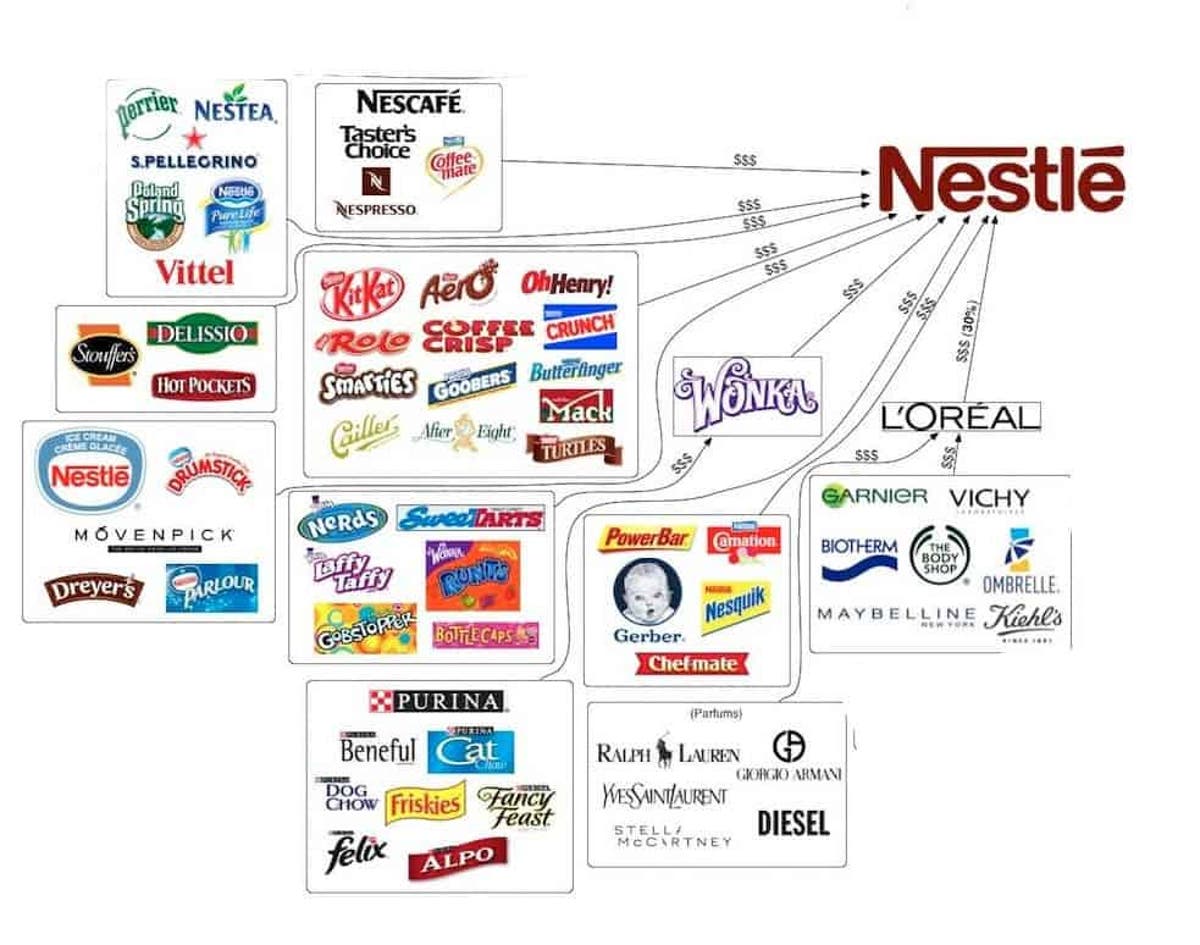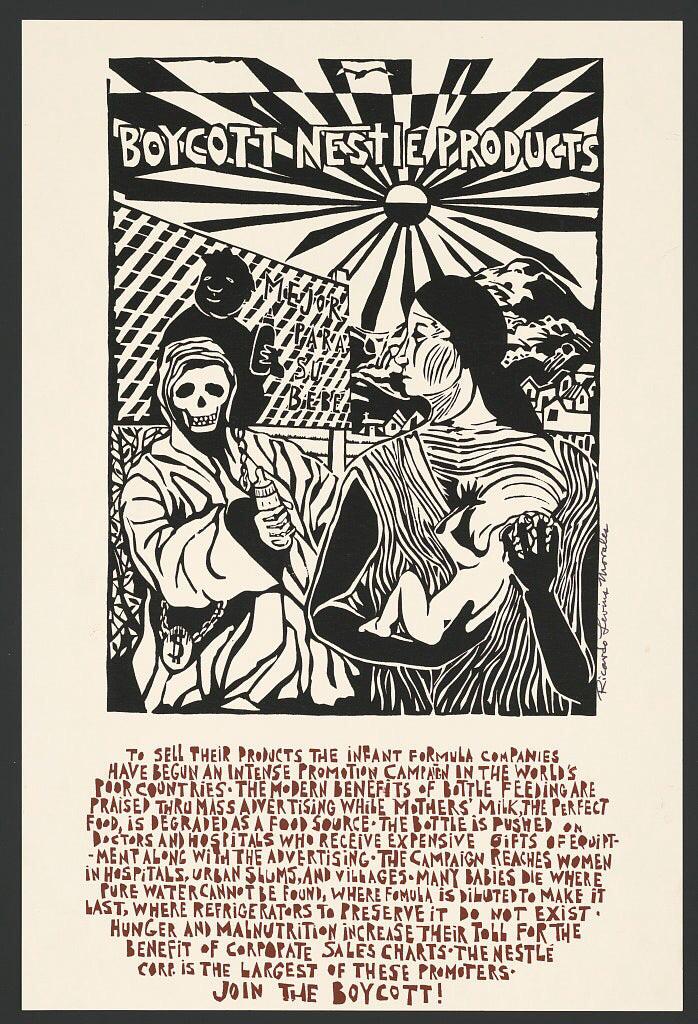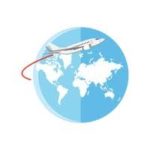The Evil Business of Nestle – Alex Gray
Nestle, founded in Switzerland 1866, has grown over the years to be the world’s largest food company, amassing over 2,000 brands in over 150 countries. However, as Nestle has grown in size it has grown in infamy, with accusations of child slavery, unethical promotion, manipulating uneducated mothers, pollution, price fixing and mislabelling. These are not things commonly associated with the KitKats and Boosts found in our tuckshops, but are these accusations justified? Well, the short answer is yes, despite being one of the best employers in Europe with six LEED certifications and the sponsors of numerous activities and sustainable projects, Nestle through the abuse of developing nations and natural resources has earned its infamy.

Our first case is in the late 20th century, in which Nestle aggressively pushed their breastfeeding formula in less economically developed countries, specifically targeting the poor. They made it seem that their infant formula was almost as good as a mother’s milk, which is highly unethical for several reasons. The first issue was water sanitation, as due to mislabelling, illiteracy and highly polluted water, children’s lives were put at risk. Many didn’t realise the formula had to be mixed with boiled water, resulting in babies being fed a mixture of polluted liquid and formula. UNICEF estimated that a formula-fed child living in disease-ridden and unhygienic conditions is between 6 to 25 times more likely to die of diarrhoea and four times more likely to die of pneumonia than a breastfed child. Another problem was that mothers tended to use less formula than needed, to make the jar last longer, resulting in many infants receiving inadequate amounts.
But even if the water was boiled and the formula was administered in the right proportion and quantity, it simply lacked many of the nutrients and antibodies that breast milk provides. Breast milk contains the required amount of the nutrients essential for neuronal development, and to some extent, protects the baby from many diseases and potential infections. Moreover, IBFAN claims that Nestle distributed free formula samples to hospitals and maternity wards; after leaving the hospital, the formula is no longer free, but because the supplementation has interfered with lactation, the family must continue to buy the formula.
Now with the manipulation and indirect damaging of children in developing country’s considered, let’s move swiftly on to slave labour, more specifically Nestle’s Ivorian plantations. In 2005, The International Labour Rights Fund filed a lawsuit against Nestle, among others, on behalf of three Malian children. The suit alleged the children were trafficked to Côte d’Ivoire, forced into slavery, and experienced frequent beatings on a cocoa plantation. However, In 2010, the US District Court for the Central District of California determined corporations cannot be held liable for violations of international law and dismissed the suit.
In addition, Nestle are not only guilty of harming human life but also our water supplies. A 1997 report found that in the UK, over a 12 month period, water pollution limits were breached 2,152 times in 830 locations by companies that included Cadbury and Nestle. However, the situation in China was much worse, as Nestle further abused pollution regulations whilst also capitalising on the poor conditions of water to sell their products, namely their bottled water, of which the majority is illegally extracted from Brazil.
However, despite years of avoiding settlements in lawsuits across the world, Nestle’s wrongdoings have in some places caught up to them. In 2007, the Competition Bureau raided the offices of Nestlé Canada, along with those of Hershey Canada Inc. and Mars Canada Inc, in an investigation on price fixing. Nestlé and the other companies were subject to class-action lawsuits and ultimately settled for $9 million, without actually admitting liability. Furthermore, former president and chief executive officer of Nestle Canada is facing criminal charges. In the US, another larger trial was rejected, because even though it was plausible that the same thing happened in the US, there was no clear evidence of any foul play. However, the suspicion remained and still lingers with the company.
The evidence shows that Nestle don’t play by the books, but still continue to thrive as a company, being rated as the world’s largest fast moving consumer goods conglomerate, with revenue amounting to a staggering 93.4 billion U.S. dollars in 2018. But what should you take away from this? Well due to the sheer control Nestle have over the foodstuffs market It can in some cases be hard to buy something they don’t own. However, I highly recommend the purchasing of Fairtrade and sustainably sourced products, which can be easily identified due to their distinct labelling. Although costing slightly more, it helps guarantee that the product you are buying is not unethically sourced.















Post Comment
You must be logged in to post a comment.